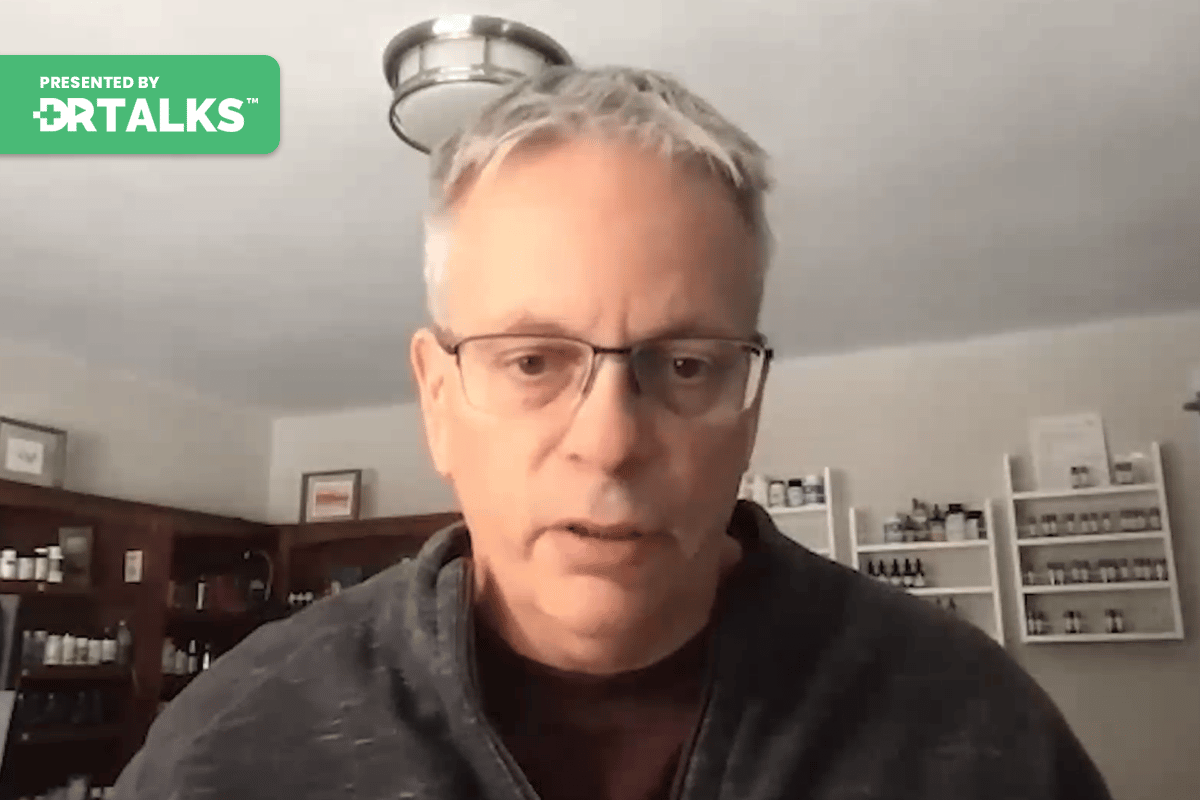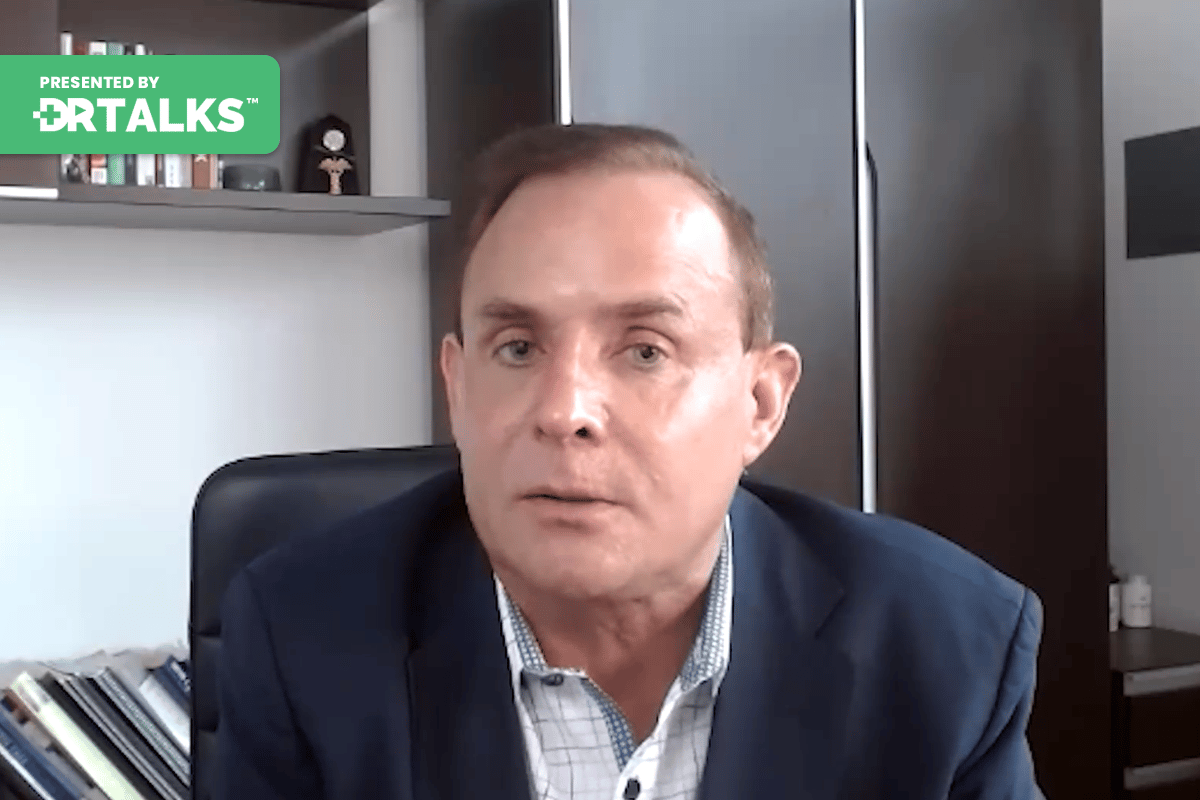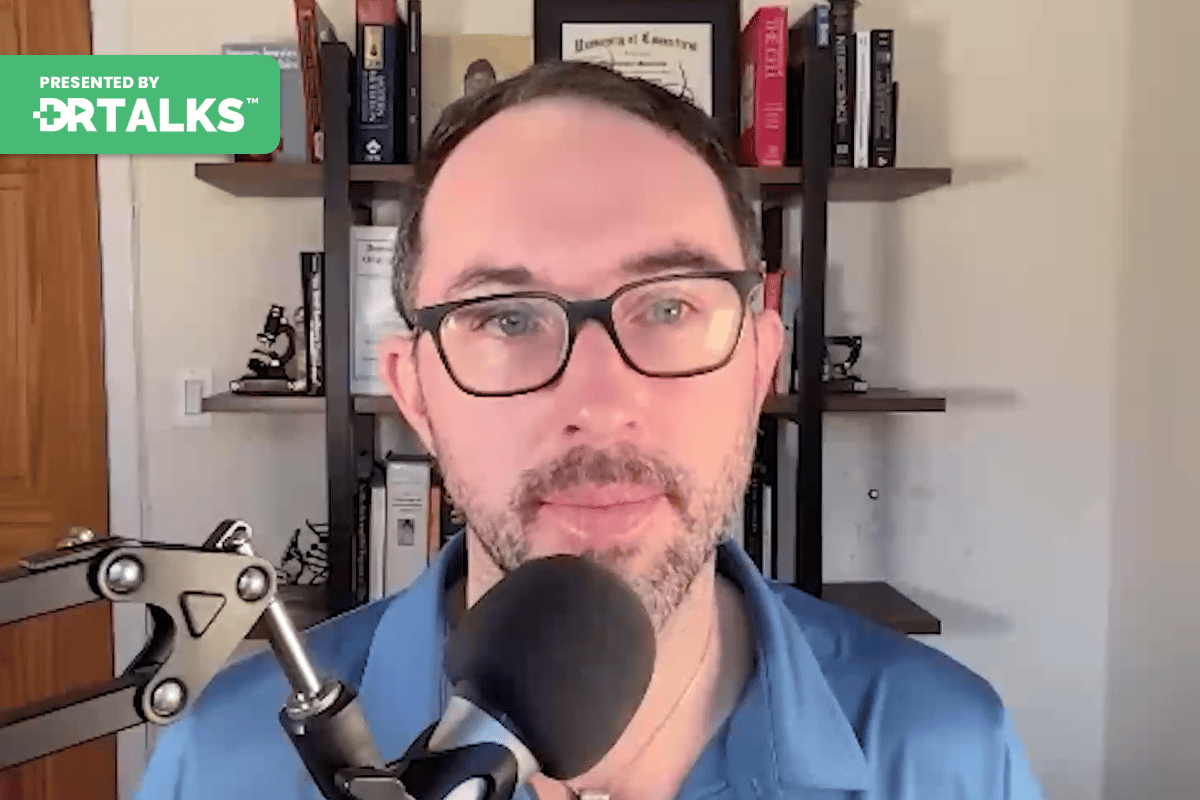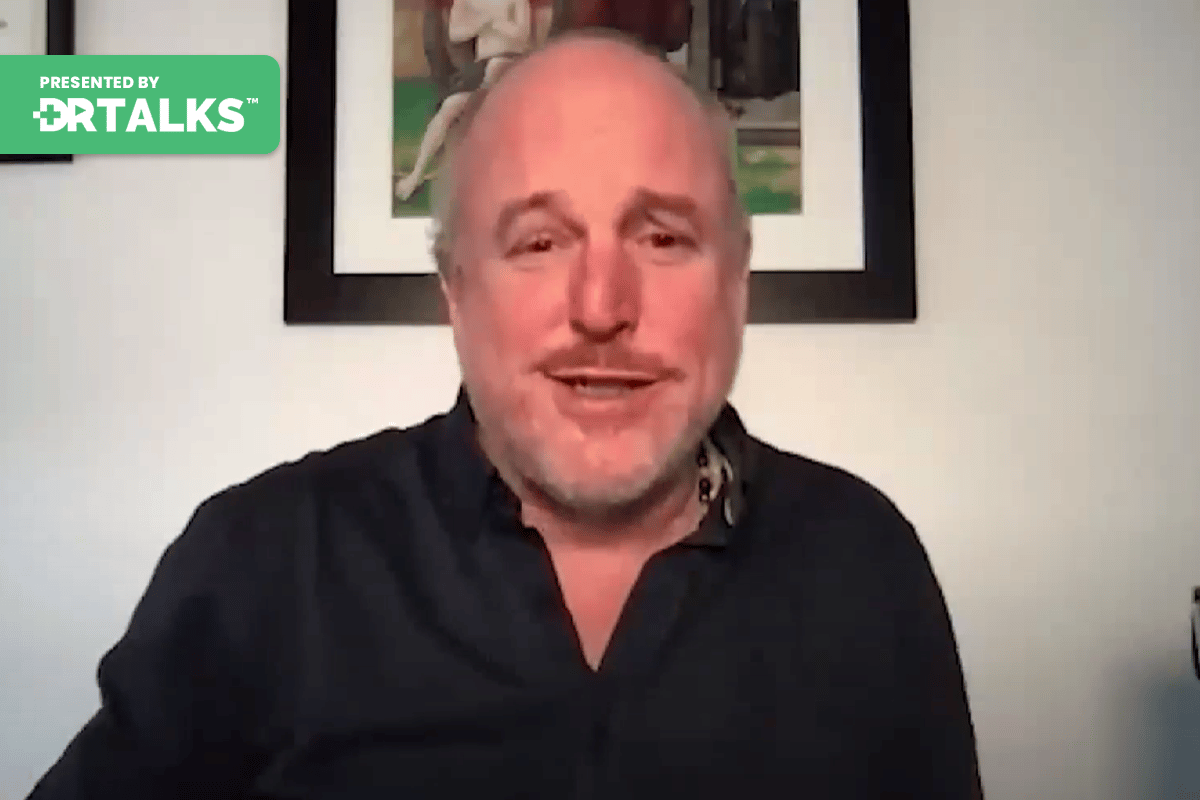The talk today is microbes and mental health rethinking the antiquated paradigm for mental health and brain issues. But why is it important right now today that we address this, that we talk about this, Why is now more important than other times in history? Part of it is that the stats when we look at, for example, the National Alliance on Mental illness, looking at the 12 month prevalence over a year’s time, about 1 in 5 U. S. Adults experiences a mental illness and About 5% or 1 in 20 experience severe or serious mental illness. This isn’t just a half a percent. It isn’t a person here or there. This is 1 in 1 U. S. Adults 17% of youth in a given year experience a mental disorder that’s that hits me what hits me even more is when we look at lifetime prevalence in adolescence. The national comorbidity survey, the adolescent supplement Estimated that about 49.5%, that’s essentially half of adolescents have struggled with mental illness in their lifetime and 22.2% that’s 1 in 5 serious mental illness. Mental health issues aren’t just a quality of life problem that people don’t feel great some of the time. No. To getting mental health diagnosis means it’s functionally getting in the way of day to day living and for some it’s challenging their families or their relationships with their spouse or loved ones or friendships and for some unfortunately even their own well being and some even take their own life. And this is really important. This is really important because today we’re dealing with, I would call an epidemic an epidemic of and it’s not just mental health brain function relates to mental health. It also it’s cognitive impairment.
Alzheimer’s it’s dementia and the stats aren’t great here either. The Alzheimer’s association has come forward in 2022 saying 1 in 3 seniors dies with Alzheimer’s or dementia. That’s a third Between 2000 and 2019. Whereas heart disease deaths, the number one killer heart disease deaths went down 7.3%. Alzheimer’s deaths increased in that same time period by 145%, essentially tripled. This is a big deal and that was before covid post. Covid 17% increase. So this is on the rise. This is significant. And what’s sad is that so many people Chalk it up to quote unquote aging, the early signs, the early signs of cognitive impairment. Most people greater than 80 do not understand and are not familiar with early signs of cognitive impairment. There is brain dysfunction happening where not a lot of people recognize it and the people who get far progressed in this, who deal with a family member or a loved one who is progressed in this. The word they tend to use is not that this was unpleasant. Not that this was a challenge. Not that this was a struggle. The word they tend to use is this was devastating. This is big and we really need to do something for brain health. We really need to do something for mental health. What we’re doing currently is not working.
Why part, I believe is because we do have an integrated paradigm for the causes of why mental health and brain dysfunction arise. The Serotonin Hypothesis of Depression began in the 1960s, with some studies that looked at populations that had diets that were deficient in an amino acid called L-Tryptophan. L-Tryptophan is a precursor to serotonin. The idea was that these populations had diets low in Tryptophan and had higher rates of depression. The conclusion that researchers drew from this is that maybe it’s the low Tryptophan leading to low serotonin leading to depression. It was a hypothesis in the theory. It was correlation, not causation. They didn’t find that if someone wasn’t depressed, they gave them a low Tryptophan diet and they became depressed. No, that would be more causation. It was just that a population that had diets tending to be lower in Tryptophan had higher tendency towards rates of depression. In some of the early studies, this became popularized. And then in the 1990’s some drugs were developed a class of drugs called the selective serotonin re uptake inhibitors are s s our eyes and what these drugs primarily target is serotonin in the brain, the amount of the pool of serotonin in the brain is more available for longer. So it extends how much affect serotonin has. And when they did studies on depression, they found that it did do better than placebo. It didn’t do great, but it did better than placebo. And for some people it was incredibly effective. And so these drugs were released and the theory was solidified that it is low serotonin that’s causing depression because why else would these drugs work and we have all this background research of the L-Tryptophan and increased depression.
So here we go. It solidified. It became popularized in research circles in medical circles and even in the general public, it became the overwhelming belief that the chemical imbalance in the brain is the main cause of mental health. However, this study came out in 2022 that shook the foundation and there have been others that have shaken the foundation, but this really has begun to call into question the whole idea about a link between serotonin depression, which is the beginning of the idea that neurochemical imbalance in the brain is the cause of mental illness. And this study was called the serotonin theory of depression. A systematic umbrella review of the evidence and the conclusions that they came to after they did a meta analysis of the trip to fan studies, they said, well, actually, these tryptophan depletion studies didn’t find much of an effect. Actually. They found no effect in healthy volunteers and only weak evidence with those, the family history of depression. Some of them found no effect at all for anyone. When they looked at a meta analysis of all the studies and pulled it all together and same with other studies relating low serotonin levels to depression and the conclusion that the authors came to is the main areas of serotonin research provide no consistent evidence of there being an association between serotonin and depression and no support for the hypothesis that depression is caused by lowered serotonin activity or concentrations, wow, no support this is a big statement now, there’s some controversy around the study and people arguing and why then are SSRI is effective for some people with depression.
So there’s a lot to unpack here, but the study went on to say some evidence was consistent with the possibility that long term it depressant use reduces serotonin concentration. So in analyzing the study, essentially, the question comes up is their weak or nonexistent connection between serotonin and depression. If not serotonin depletion, what are the main causes for depression? Brain imbalance and mental illness? And what does this mean for that idea? That fundamental sense that the public tends to hold of chemical imbalance as a cause for mental illness and why are SSIR medications so effective in some cases, which brings rise to a new paradigm for mental health, an interest and a curiosity in exploring what are the mechanisms and then what are the causes for those mechanisms that are underlying mood and brain imbalances, if not neurochemicals? BDNF signaling is one possible mechanism for why antidepressant medications may be affected? Brain derived neurotrophic factor signaling in depression and antidepressant action neurotrophic factors. So these are like BDNF is one neurotrophic factor, neurotrophic factors actually do cool things in the brain, like make you be able to make new neurons, how cool is that you can actually the brain itself with higher levels of neurotrophic factors can actually build new neurologic pathways. BDNF is associated with what’s called neural plasticity. This is the capacity for the brain to change and adapt and learn and grow. This declines with age and is associated as it declines with onset of brain dysfunction. Alzheimer’s dementia and also with mood issues. And that link has become more and more clear and what’s also become clear is that antidepressants regulate BDNF signaling.
So this study basically says that although some equivocal data exists, the hypothesis of a connection between neurotrophic factors like BDNF neuronal plasticity, which BDNF increases and mood disorders with antidepressant action has recently been further strengthened by converging evidence from a variety of recent data. So essentially it’s saying maybe antidepressants are effective not so much because the serotonin issue, Maybe it’s actually increasing BDNF and maybe that’s part of why? So, a connection between BDNF signaling antidepressant medications maybe there and is BDNF signaling a significant reason for those who do respond to antidepressants and what else? Aside from antidepressants, because they were designed more to target serotonin, they just happened to also impact neurotrophic factors. What else might impact BDNF and what other causes for mental health and brain imbalances are there, we also have anti inflammatory mechanisms of antidepressants, this study shows, and it begins with the sided kind theory of depression no longer brings about any doubts. No longer brings about any doubts, basically, it’s saying the research community agrees inflammatory proteins called cytokines are a caused a factor for depression.
That’s very clear experiments and research studies conducted in the last 10 years have confirmed that both physical and psychological stress increase the likelihood for mental health disorders. So there is, yes, of course emotional psychological and physical stress and inflammation is part of that. The underestimated anti inflammatory and anti oxidative effect of SSRIs, SNRI’s. These antidepressant medications may be one of the potential mechanisms of action. The mechanism of anti inflammatory action may serve as a possible explanation for the efficacy of antidepressants. So perhaps anti inflammatory and anti oxidative actions may be part of the reason why antidepressants are effective for some, there’s a cytokine theory for depression that says that inflammation can cause depression and there’s a good link between inflammation and Alzheimer’s as well. How do these mechanisms play a role for those who respond and what other causes might there be for brain and mood disorder? So in this summit we’re going to explore an alternative hypothesis for depression, for mental illness and for brain dysfunction that’s centered around that there may be mechanisms of brain derived neurotrophic factor BDNF and plasticity. There may be mechanisms related to the cytokine theory for depression related to inflammation and neuro inflammation contributing to the onset of mental illness and brain dysfunction as well as oxidative stress and mitochondrial dysfunction may be playing the role. So anything that can cause these mechanisms cause oxidative stress or chronic inflammation or decline in BDNF and other neurotrophic factors may be part of the root cause for mental health and brain issues. So what is upstream of these mechanisms?
Why might BDNF signaling be impaired? How and why does chronic inflammation set in? And what are the main sources for oxidative stress? And is there anything that can be done? The microbes and mental health summit is going to be exploring these questions in great depth and detail from experts all over the map who are going to explore from varying perspectives. Microbes and mental health, the good, the bad, the ugly of microbes as they relate to brain function. Because microbes infections and pathogenic microbes can be causing chronic inflammation can be contributing to oxidative burden can be impacting neurotrophic factors in the brain and toxins produced by microbes, molds and other certain kind of toxic chemicals like the LPS in the outer wall of the cell membrane of gram negative bacteria is considered an endo toxin that can cause chronic inflammation and the gut and body. By on the ecology. The diversity is not all bad. Microbes actually can be good that can produce positive chemicals that can increase BDNF neurotrophic factors and the ecology and the gut, the ecology and the bio and the sinuses and the skin all can be important and impactful for immune system regulation for management of infections. So it’s not that microbes are good or bad and even that is too simplistic. There’s an ecology and the diversity. We’re gonna be diving into how that ecology and that diversity and imbalances in that maybe some of the big causes that are giving rise to the increased mental health and brain disorders at this time, I am so looking forward to you, journeying together through understanding the mechanisms and causes for brain and mental health issues. Thank you so much for watching. This is Dr. Miles Nichols with the medicine, With heart functional medicine clinic, take care.











